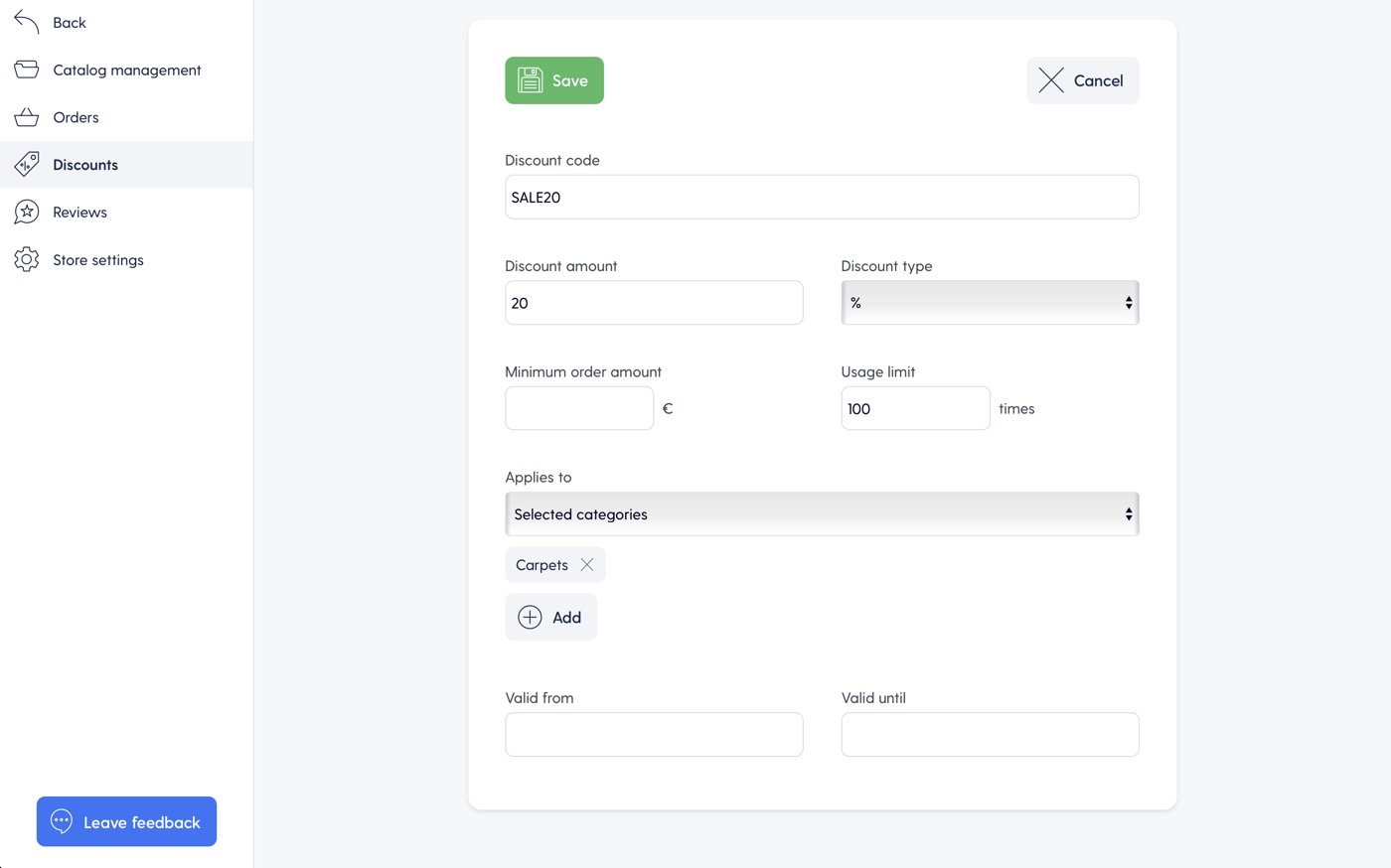5 marketing and advertising campaigns you should be running as an SMB

One of the main challenges for any small and medium-sized business (SMB) is getting potential customers to your website – you may have a quality product and a beautiful website, but people won't just magically find them. You need to put in effort to make your presence known and you can do that with marketing and advertising campaigns.
Marketing isn't just for big companies. In today's saturated market, it's essential for SMBs to continuously run campaigns to get noticed, stand out from the crowd, and boost business growth and profit.
For a lot of beginner entrepreneurs, marketing may sound scary. It's a big field, with a lot of complexity, and comes with the risk of losing resources through failed campaigns. But the reality is that a few simple, tried-and-tested methods are enough to take your business to the next level.
In this article, we'll talk about 5 basic marketing and advertising campaigns you should be running as an SMB, and explain how they can help your business, how they work, and how to get started.
1. Email campaigns
Email campaigns involve sending targeted and personalized emails to your subscribers. These emails can contain product updates, special offers, newsletters, or informative content and they work by nurturing customer relationships, driving sales, and increasing brand awareness.
Email campaigns are an essential marketing tool for SMBs because they offer a direct line of communication with your audience. According to statistics, email marketing has an impressive ROI (return on investment), with an average return of $36 for every $1 spent, making it a cost-effective way to engage with both existing and potential customers.
To launch an email campaign, you need to:
- Create a mailing list by collecting email addresses from customers and website visitors.
- Choose an email marketing platform, e.g. Mailchimp, to create professional-looking emails.
- Write engaging emails that feature relevant offers and interesting information for the recipients.
- Stick to a regular schedule for sending out updates and building familiarity with your reads.
- Constantly analyze and improve performance by tweaking content, testing subject lines, and reviewing performance data.
Mozello offers an easy way to collect visitor emails with Engaga's sign-up form. Make sure to place it prominently on your website to build a strong email list. Plus, for more detailed information, check out our complete email marketing guide.
2. Customer referral programs
Customer referral programs encourage your existing customers to refer others to your business. Typically, customers receive rewards, discounts, or incentives for successful referrals, while the referred individuals get special offers.
Customer referral programs are effective because they harness the power of word-of-mouth marketing. People trust recommendations from friends and family, making this a powerful tool for SMBs to acquire new customers.
To launch a customer referral program, you need to:
- Decide on a reward for participants, e.g. promo codes that give discounts for future purchases.
- Create a user-friendly process by making it easy for people to refer others through email, social media, or other channels.
- Promote your program to your customer base so that they know how to make use of it.
- Review and optimize regularly to ensure the program is being used at its full potential and to help you drive sales.
With Mozello, it's easy to create discount codes which you can then share with your customers, making it super quick to get a simple referral program up and running.

3. Optimization for local SEO
Local search engine optimization (SEO) involves optimizing your online presence, including your website and Google My Business profile, for local search queries. It improves your visibility in search engine results pages when users search for businesses in your area.
Local SEO (and SEO in general) is crucial for SMBs because, as the name suggests, it helps you appear in local search results. This allows potential customers in your area to find you more easily.
To optimize for local SEO, you need to:
- List your business on Google My Business with accurate information.
- Optimize your website's SEO, both generally, as well as specifically by including location-specific keywords that potential customers might search for.
- Ask for reviews on Google and other local platforms from satisfied customers.
- Create content for locals, such as relevant blog posts and articles, that grow your online presence, and make sure to also do it in the local languages.
With Mozello's easy SEO tools, you can easily make your pages more search engine friendly. Plus, we've written an entire SEO guide for you to follow to boost your rankings, not just locally, but in general, too.

4. Retargeting ads
Retargeting ads display your ads to users who have previously visited your website but did not buy anything. This is achieved by placing a pixel or code on your site to track visitors and show them relevant ads on other websites or social media platforms.
Retargeting ads are a powerful tool for reminding potential customers about your products or services after they've visited your website. Only 2% of traffic converts after an initial visit to your store, and retargeting can help to re-engage the other 98%, effectively keeping your brand in their mind.
To launch a retargeting campaign, you need to:
- Add retargeting pixels from Google and/or Facebook to your website.
- Set up the campaign and creatives in Google Ads enticing customers to return to your website and reconsider a purchase.
- Set your budget and bidding strategy based on your goals.
- Analyze performance by continuously monitoring how your ads are doing and adjust them for better results.
Mozello lets you easily take care of the first step with dedicated fields for tracking pixels – you can find them and fill them out in the general settings section.
5. (Micro)influencer promo campaigns
Last, but not least – you can collaborate with influencers (or micro-influencers) in your industry or niche who have a following that matches your target audience to create content or promotions that showcase your products or services to their followers.
Influencer marketing can be particularly effective for SMBs, as it leverages the trust and authority of influencers to promote your products or services.

To launch an influencer campaign, you need to:
- Identify relevant influencers in your niche by looking at the content they post and what their audience likes.
- Reach out to gauge interest in collaborating with you, while also getting to know them better.
- Negotiate terms of collaboration, specifically, what they will post, when, and what it will cost you.
- Analyze and review the campaign statistics on your end, and don't forget to ask the influencers for their post data.
It's perfectly fine to engage multiple influencers for a single campaign, however, it may be a smart idea to start with one for your first campaign.
The key to success – find what works for you
As a business owner, you shouldn't run these campaigns because someone told you to. You should do it because it benefits your business.
Accordingly, while it's wise to try out different methods, you need to evaluate which are the most profitable and focus on those.
That said, don't be too quick to dismiss something because of a bad experience or lack of immediate results. Some campaigns may take months to kick into gear and you wouldn't want to stop something right before the going gets good.
Here's a suggestion for those taking their first steps in marketing:
The first time around, you should simply test things – learn how to set up campaigns, learn to measure and understand results, and see what happens. Then, the next time, once you know how things work, you should set clear goals for your campaign (e.g. a certain amount of profit) and see whether you meet the expected results and then optimize from there.
The bottom line is this – marketing and advertising campaigns are necessary for your business to grow, but make sure you're running them efficiently in such a way that they contribute to your entrepreneurial efforts.
